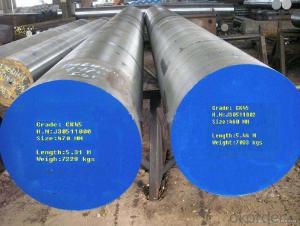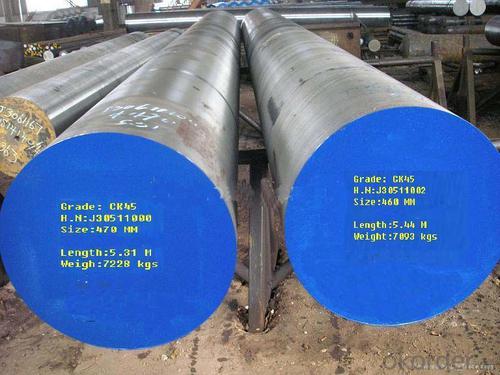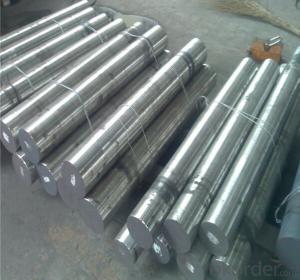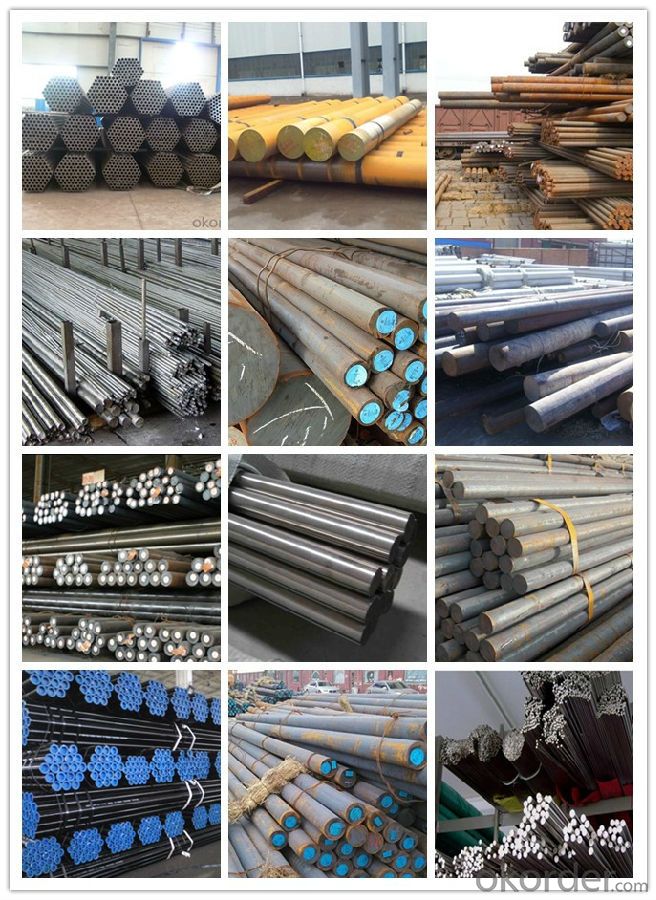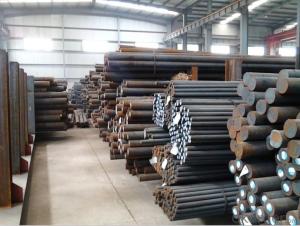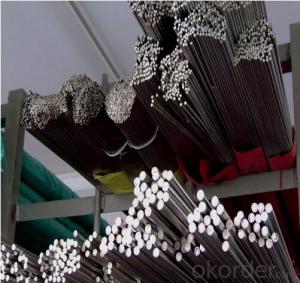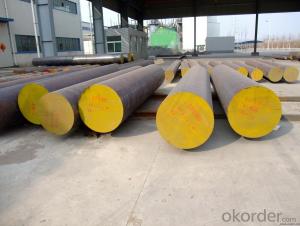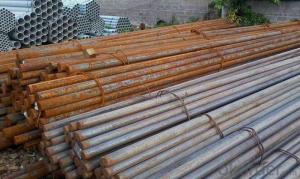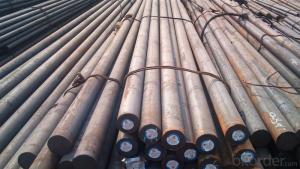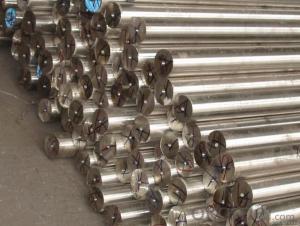Special Steel SKD12 Round Forged Tool Steel
- Loading Port:
- China main port
- Payment Terms:
- TT OR LC
- Min Order Qty:
- 30 m.t.
- Supply Capability:
- 10000 m.t./month
OKorder Service Pledge
OKorder Financial Service
You Might Also Like
Specification
Specifications
SKD12 Flats
1.Dimension:10~620mmX50~1200mm
2.Delivery Conditon:annealed, black/milled surface
3.Short Delivery Time
Product information
Chemical Composition(%) | ||||||||
C | Si | Mn | P | S | Cr | Mo | V | |
0.95-1.02 | 0.10-0.40 | 0.40-0.80 | ≤0.030 | ≤0.030 | 4.80-5.50 | 0.90-1.20 | 0.15-0.35 | |
Use | ||||||||
1. corrosion resistance | ||||||||
2. wear resistance of high quality plastic mould | ||||||||
3. transparent plastic mould. | ||||||||
Heat Treatment | ||||||||
annealed, 229HBS max(optional)/after Q+T, hardness 28-32HRC(optional) | ||||||||
Melting Process | ||||||||
1. EAF: Electric Furnace+LF+VD(Optional) | ||||||||
2. ESR: Electric Furnace+LF+VD+Eleroslag Remelted(Optional) | ||||||||
UT Class | ||||||||
According to Standard of SEP 1921/84,100% Volume, Level C/c, D/d or E/e | ||||||||
Tolerance on Quantity | ||||||||
+/-10% Per Size Documents 1. Packing List 2. Invoice 3. CO. 4. Bill of Loading 5. Shipping Advice 6. Mill Test Certificate 7. The other files as you requested | ||||||||
Product show
Workshop show
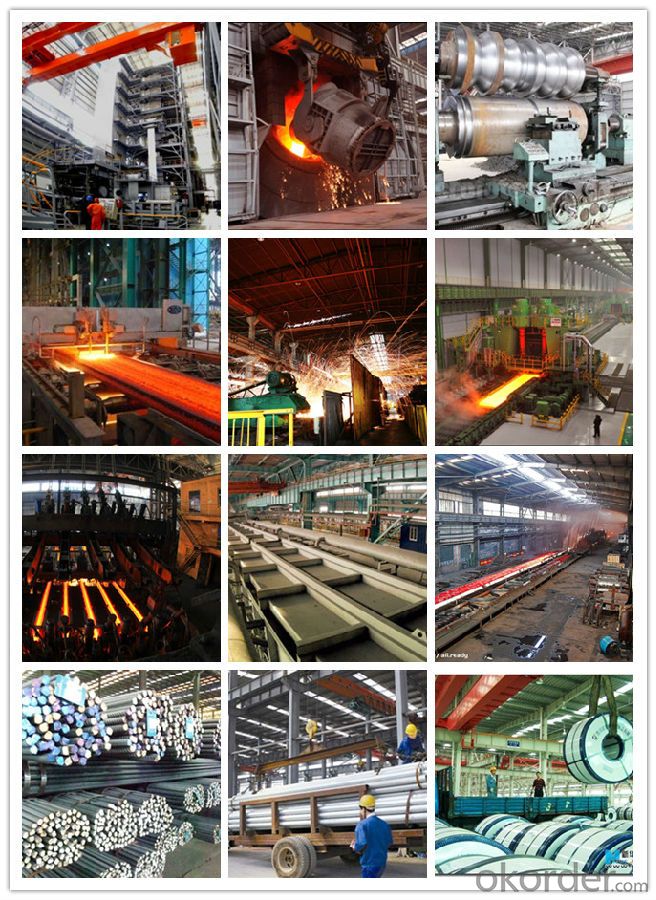
Shipping
1. FedEx/DHL/UPS/TNT for samples, Door-to-Door;
2. By Air or by Sea for batch goods, for FCL; Airport/ Port receiving;
3. Customers specifying freight forwarders or negotiable shipping methods!
Delivery Time: 3-7 days for samples; 5-25 days for batch goods.
Payment Terms
1.Payment: T/T, L/C, Western Union, MoneyGram,PayPal; 30% deposits; 70% balance before delivery.
2.MOQ: 1pcs
3.Warranty : 3 years
4.Package Informations: 1) EXPORT, In 20 feet (GW 25 ton) or 40 feet Container (GW 25 ton)
2)as customer's requirement
Why choose us?
(1) The leading exporter in China special steel industry.
(2) Large stocks for various sizes, fast delivery date.
(3) Good business relationship with China famous factories.
(4) More than 7 years steel exporting experience.
(5) Good after-sales service guarantee.
- Q: How does special steel contribute to the waste management industry?
- Special steel plays a crucial role in the waste management industry by providing durable and corrosion-resistant materials for various applications. It is used in the fabrication of waste containers, compactors, and shredders, ensuring their longevity and ability to withstand harsh environments. Additionally, special steel is utilized in incinerators and waste-to-energy plants, where its high heat resistance helps optimize the combustion process. Overall, special steel contributes to the waste management industry by enhancing the efficiency, durability, and sustainability of its equipment and infrastructure.
- Q: What are the different techniques used for joining special steel?
- Some of the different techniques used for joining special steel include welding, brazing, soldering, and mechanical fastening. Welding involves melting the surfaces of the steel pieces to be joined and fusing them together. Brazing and soldering involve using a filler material that melts at a lower temperature than the steel to join the pieces together. Mechanical fastening techniques, such as bolts, screws, or rivets, can also be used to join special steel components together.
- Q: How does special steel contribute to reducing product downtime?
- Special steel contributes to reducing product downtime by offering enhanced mechanical properties such as increased strength, hardness, and wear resistance. This allows components made from special steel to withstand harsh operating conditions, reducing the likelihood of breakdowns or failures. Additionally, special steel can be tailored to specific applications, ensuring optimal performance and longevity. By using special steel in the manufacturing process, products are more reliable, have longer service lives, and require less frequent maintenance, leading to reduced downtime and improved productivity.
- Q: How does special steel compare to other materials?
- Special steel, known as alloy steel as well, possesses outstanding strength, durability, and resistance to wear and corrosion. When compared to regular steel, aluminum, and plastic, special steel stands out due to its superior mechanical properties. To begin with, special steel offers higher tensile strength and hardness, making it perfect for applications that require heavy-duty performance. Its ability to withstand high pressures and temperatures, as well as resistance to deformation, make it suitable for industries like aerospace, automotive, and construction. Furthermore, special steel has excellent wear resistance, making it suitable for applications that endure friction, abrasion, and impact. This characteristic reduces the need for frequent repairs or replacements, resulting in cost savings and improved efficiency. When it comes to corrosion resistance, special steel surpasses regular steel, which tends to rust when exposed to moisture or aggressive environments. The presence of elements like chromium, nickel, and molybdenum in its composition creates a protective layer on the surface, preventing corrosion and extending the lifespan of the material. Compared to materials like aluminum and plastic, special steel has the advantage of being more robust and less prone to deformation or breakage. While aluminum is lightweight, it lacks the strength and hardness of special steel, limiting its suitability for heavy-duty applications. On the other hand, plastic offers lower strength and durability compared to special steel, making it less appropriate for demanding tasks. Moreover, special steel can be easily machined, fabricated, and welded, allowing for versatile applications across various industries. Its flexibility in terms of shaping and forming makes it the preferred choice in the manufacturing of components and structures. In conclusion, special steel outperforms other materials in terms of strength, durability, wear resistance, corrosion resistance, and versatility. Its exceptional properties make it an essential material in demanding industries where reliability and performance are of utmost importance.
- Q: What are the different methods of preventing stress relaxation in special steel?
- There are several methods of preventing stress relaxation in special steel. One method is through heat treatment, specifically through the process of annealing. Annealing involves heating the steel to a specific temperature and then slowly cooling it down. This process helps to relieve internal stresses within the steel and prevent stress relaxation. Another method is through the use of stress relieving techniques. These techniques involve applying controlled amounts of stress to the steel, typically through cold working or mechanical deformation. By doing so, the steel is able to release any built-up stress and prevent relaxation over time. Additionally, the use of alloying elements can also help prevent stress relaxation in special steel. Certain alloying elements, such as molybdenum and chromium, can improve the steel's resistance to stress relaxation by enhancing its strength and stability. Lastly, proper design and engineering of components can also play a role in preventing stress relaxation. By considering factors such as load distribution, material thickness, and stress concentration points, engineers can minimize the risk of stress relaxation in special steel applications. Overall, a combination of heat treatment, stress relieving techniques, alloying elements, and thoughtful design can be employed to prevent stress relaxation in special steel.
- Q: What are the applications of corrosion-resistant steel?
- Corrosion-resistant steel, also known as stainless steel, has a wide range of applications due to its ability to resist rust and corrosion. It is commonly used in the construction industry for structural components such as bridges, buildings, and infrastructure, as it ensures durability and longevity in harsh environments. Additionally, it is widely utilized in the manufacturing of automotive parts, cookware, medical equipment, and aerospace components, where resistance to corrosion is crucial. The versatility and reliability of corrosion-resistant steel make it a sought-after material in various industries.
- Q: How does special steel perform in high-temperature oxidation conditions?
- Special steel performs well in high-temperature oxidation conditions due to its exceptional resistance to oxidation and formation of protective oxide layers, which helps prevent corrosion and maintain its strength and integrity even at elevated temperatures.
- Q: What are the factors affecting the machinability of special steel?
- The factors affecting the machinability of special steel include the composition and microstructure of the steel, the hardness and strength of the steel, the presence of impurities or inclusions, the cutting tool and its geometry, the cutting speed and feed rate, the coolant or lubricant used during machining, and the machine tool and its rigidity.
- Q: How is the quality of special steel ensured?
- The quality of special steel is ensured through a combination of rigorous testing, strict quality control measures, and adherence to international standards and specifications. Special steel producers employ various methods such as chemical analysis, mechanical testing, and non-destructive testing to verify the composition, strength, and integrity of the steel. Additionally, special steel manufacturers often have dedicated quality assurance teams that closely monitor the production process to identify any potential issues and ensure the final product meets the required specifications.
- Q: Can special steel be used in the aerospace parts manufacturing industry?
- Yes, special steel can be used in the aerospace parts manufacturing industry. Special steel alloys, such as stainless steel and titanium alloys, possess properties like high strength, corrosion resistance, and heat resistance, making them suitable for use in critical aerospace components like engine parts, landing gears, and structural elements. Their ability to withstand extreme conditions, along with their lightweight nature, makes special steel a preferred choice in the aerospace industry to ensure safety, durability, and optimum performance of aircraft.
Send your message to us
Special Steel SKD12 Round Forged Tool Steel
- Loading Port:
- China main port
- Payment Terms:
- TT OR LC
- Min Order Qty:
- 30 m.t.
- Supply Capability:
- 10000 m.t./month
OKorder Service Pledge
OKorder Financial Service
Similar products
Hot products
Hot Searches
Related keywords
